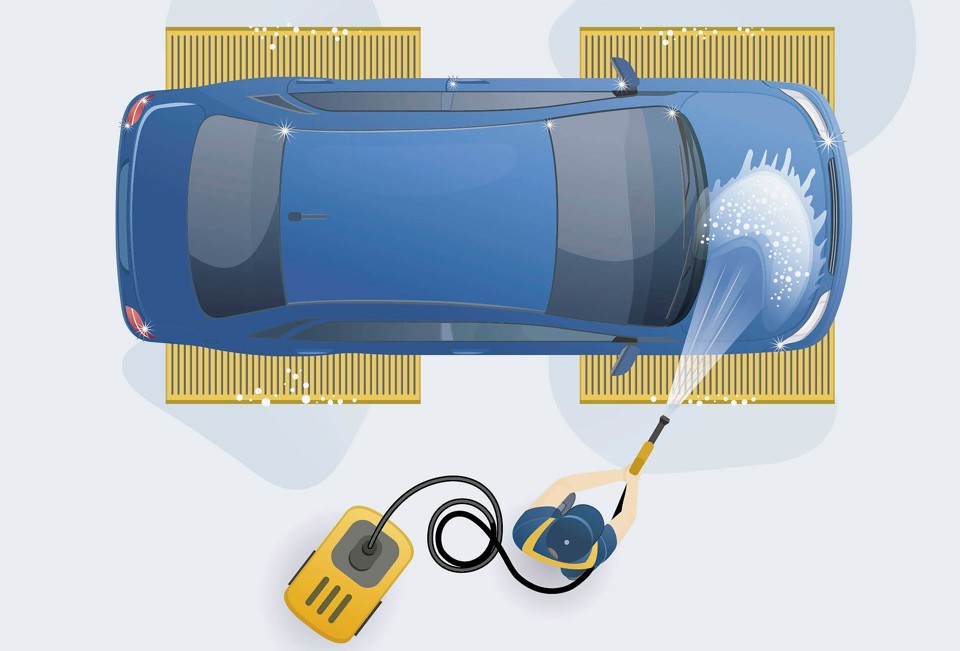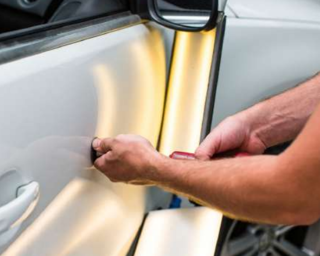It is about 15 years since the concept of sub-contracting valeting to external specialists first really took hold, but changing times and different business models have since diluted that original focus.
“It’s easy to understand why the idea was so immediately popular. Why would any dealer pay someone five days a week for 52 weeks a year, when there will always be times when they need two people, and times when they don’t even need one,” asked Martin Peters, sales director at Autoclenz Group.
“Over the years, the model has worked well, particularly if you have the right IT system and processes in place, so a dealer knows when they want people and when they don’t. The industry has rather gone away from that model though, so we’re trying to get it back.
“Motivation is one issue. You can’t incentivise people with a flat daily rate, so everyone should be on unit-based piece work. You then have a leaner and meaner team hungry for work, and you’ll probably drop one full-time member from the original team when the system is changed.”
Autoclenz uses a progress system, which also takes images to capture vehicle damage, then uses it in-house to manage operators’ efficiency and ensure best practice is followed.
Peters said the major dealership groups believe managing how often vehicles are valeted is increasingly relevant.
“We have gatekeepers to monitor the spend, so if a vehicle has already had a valet and another one is being considered, it will flag that up to the manager, and there will also be an operational gatekeeper to ensure the valeting system is working
efficiently.
“If you drove into your dealer and asked for a valet, they would most likely offer you one several days away, or even into the next week. If you insist, it’s not likely to be a very good one because they hadn’t allowed for it.
“Sometimes there will be a 24-hour gatekeeper, so if a dealer wants an unusually large number of valets, they’ll have to be in touch on the previous day.
“The IT system can also be a management tool to see which departments are within their spend and which are overshooting, so you create an internal league table to assess which users are working efficiently. Data can sometimes tell a harsh story, but without
transparency, you can’t manage effectively.”
Chorley Group, which operates Nissan, Hyundai, Kia Motors and MG Motors franchises across north-west England, uses in-house valeters – though it prefers to call them detailers – and is about to adopt a sophisticated IT system to deliver the data and transparency to which Peters refers.
“We introduced the new system because one of our managers had previously used a real-time control system, and recommended it. Our technicians began using it in March, and we’ve been very pleased with the results,” said Pauline Turner, Chorley Group’s managing director.
“Time-tracking throughout the valeting process is very difficult, because it’s all about accountability, and we pay our detailers by the hour, because it’s impossible to set a time for a vehicle.
“The new system will allow staff to input times and detail about the process via their iPads or mobiles, so everything about the condition of the vehicle, the time they spend on different aspects, and if they are working with other in-house teams, is all accurately recorded.”
The system will also include data about detailers’ off-site time, perhaps collecting vehicles from customers or moving cars between group sites.
All in-house training is done by Chorley’s head of valeting, who has been with the group for 30 years, to ensure quality standards are maintained across all franchises.
“We call our staff detailers because we expect them to consider every detail of their work. They might, for instance, notice a torn seat cover which has been missed by the technician, so they’d get in touch with the upholstery repairers, or a scuffed alloy wheel which needed attention from the body shop,” said Turner.
“Having a detailed record is great for passing on feedback. We already incentivise our detailers, and asking about the cleanliness and appearance of a vehicle is one of the questions on our customer satisfaction surveys.
“We’re running at around 95%, so detailers are receiving a monthly bonus. The system is also useful for the management team, as we can see those people who are working that little bit harder, which we might not know about if we used a more traditional approach.”
However, not far away at North-West and North Wales BMW and Mini retailer Halliwell Jones, external valeting companies are used, and sales director Jim Houghton expects that will continue to be their preferred option.
“We have a day rate for demonstrators, used cars, display vehicles and customer service washes. We have found over the years that is the best approach to achieve high productivity from the valeters, without compromising on quality,” he said.
“We also pay for valets on new and used cars on a piece time basis, where we pay a set amount per valet with a sound quality control process in place.
Houghton, who has been with the group for almost 30 years, believes it is essential for any dealership looking to take on new valeting suppliers to carry out due diligence on their financial structure and insurance liability cover .
“If those elements are acceptable, we would then look at credit payment terms and at the quality of the cleaning materials and equipment they use.”
He identifies outsourced suppliers’ ability to cover both holidays and periods of sickness as a crucial benefit.
“If someone was directly employed, and they phoned in sick at short notice, it would be impossible to find a replacement valeter who understood any processes in place and the quality required.
“However, an external contractor can put in a suitable replacement at short notice, and it’s a real benefit, which we have really appreciated.”
IAN HALSTEAD



















Login to comment
Comments
No comments have been made yet.